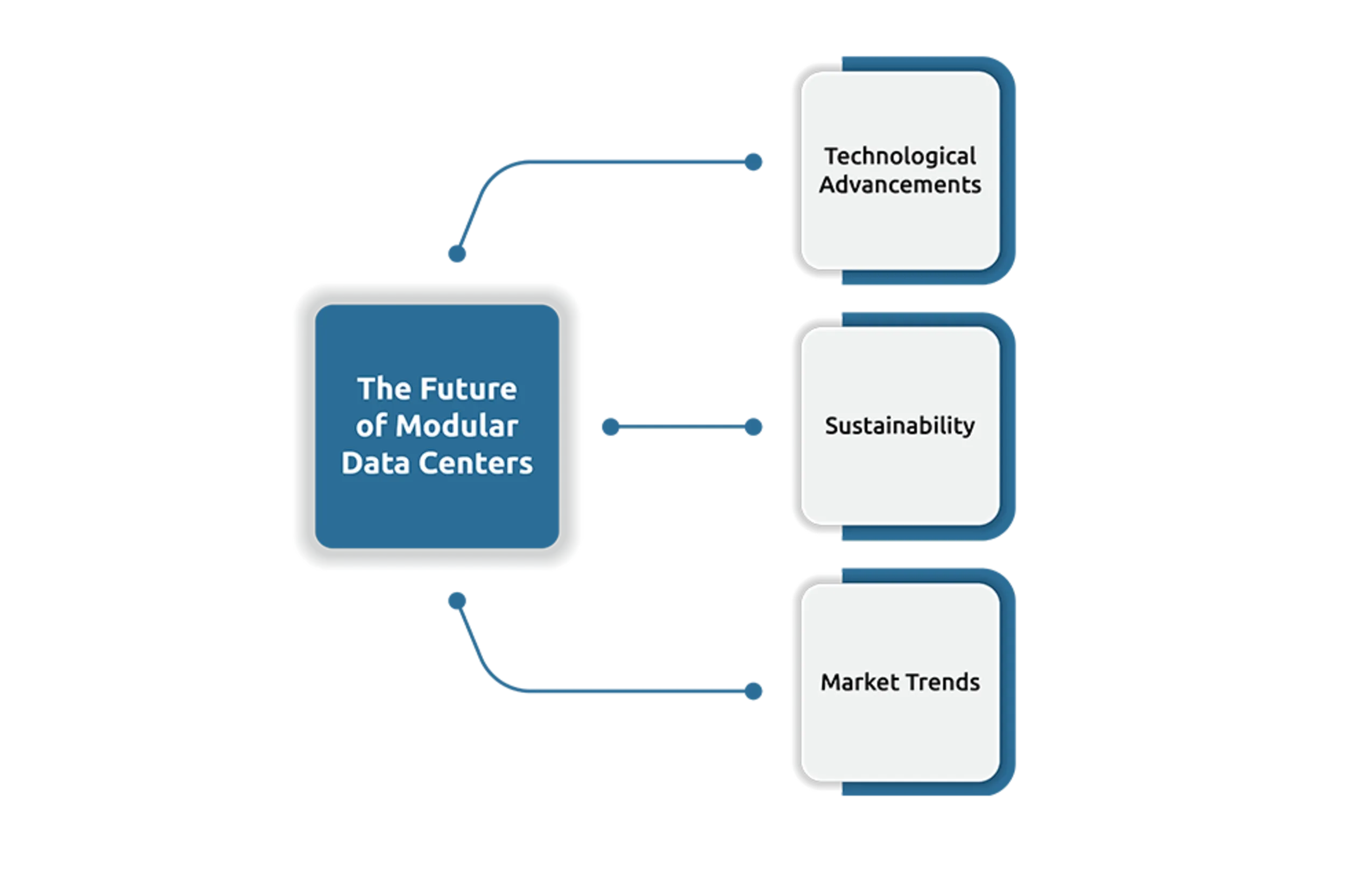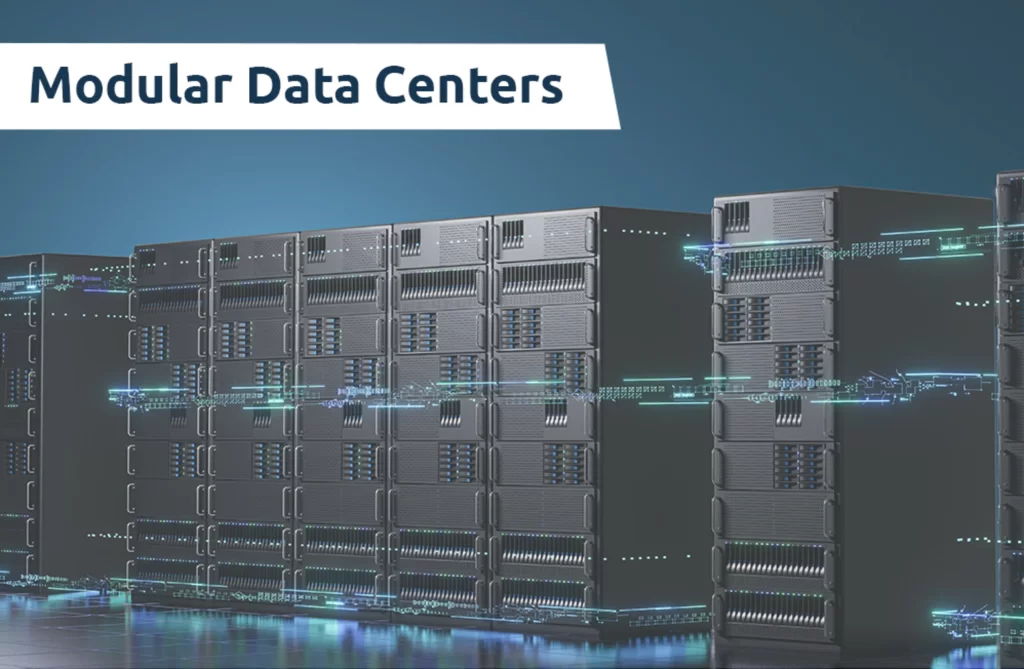Introduction
The digital transformation across various industries demands highly adaptable and scalable IT infrastructure. With businesses depending more heavily on data, traditional data centers frequently find it to keep up with the growing demands for quick deployment, energy efficiency, and cost-effectiveness.This is where modular data centers Introduce an revolutionary solution that deals with these issues directly.
Modular data centers consist of prefabricated, containerized units that provide scalable, efficient, and portable data processing abilities which are perfectly suitable to the requirements of today’s fast-growing technological world.
What Are Modular Data Centers?
A modular data center refers to a portable collection of components that are required to supply data center capacity like storage, networking environment and data centers servers.
Modular data centres are great alternatives to traditional data centres In which the overall design and construction are simplified to overcome general bottlenecks like increasing the speed of scaling capacity, sufficient space distribution, environmental deployments, etc. These data centres are flexible in terms of configuration and growth, have efficient speed, and are predictable in terms of cost and availability.
Use Cases and Applications
In IT Enterprise, Huge companies which are looking for flexibility and scalability in their IT infrastructure can utilize to handle fluctuating workloads and data storage requirements.Which allow for easy scaling up or down, making sure that companies are not overpaying for unused capacity.
Modular data centers play a crucial role in enabling edge computing, where data processing happens closer to the source like IoT devices or remote locations. By deploying modular units at edge locations, businesses can reduce latency and bandwidth costs while improving service delivery.
In case of a disaster, modular data centers provide a fast and dependable way for restoring operations. Their rapid deployment and portability allow these units to be set up quickly in emergencies to ensure that critical data remains accessible and operations can resume without delay.
For military operations or scientific research conducted in remote or challenging environments, modular data centers provide a portable solution that can be deployed wherever needed. These units are built to be rugged and can function effectively in harsh conditions, supporting mission-critical data processing.
Healthcare suppliers that manage confidential data require Secure storage options. Modular data centers that are used to store and process medical data, making sure of quick access and scalability while maintaining the high security standards required in the healthcare industry.
Challenges and Limitations
Initial Costs:
Although modular data centers can lead to cost savings over time, the upfront investment can be considerable, especially for customized designs or premium components. Nevertheless, these initial costs are frequently offset by the long-term savings in operations and the ability to scale effectively.
Maintenance:
Ensuring the seamless operation of modular data centers over time can require regular maintenance. As the systems grow or evolve, integrating additional components or services may present challenges if compatibility isn’t carefully considered.

Integration with Legacy Systems:
Many businesses rely on legacy systems that may not be easily compatible with a modular data center setup. Integration of these older systems with modern modular solutions can require specialized software or hardware adjustments, making the transition more complex.
The Future of Modular Data Centers
As companies continue to integrate cloud computing, IoT, and AI they demand for scalable, and reliable IT infrastructure is set to grow. Modular data centers are Ideally placed to handle these needs through technological advancements such as:
Technological Advancements:
The integration of AI-based management tools, IoT-based monitoring, and predictive analytics will make smarter modular data centers. They allow for real-time resource optimization, predictive maintenance, and automated scaling.
Sustainability:
As the demand for sustainable solutions grows, many modular data centers will focus on sustainability. Using renewable energy sources like solar and adopting latest cooling technologies, further reduce carbon footprint.
Market Trends:
In the coming years the modular data center market is expected to grow significantly, Motivated by the increasing need for edge computing, energy efficiency and faster deployment. Companies across the industries will continue to adopt these solutions for their Affordability and flexibility

Conclusion
Modular data centers transform the way of businesses that think about IT infrastructure. By providing scalability, energy efficiency, portability, and fast deployment, they provide flexible solutions for modern businesses which are facing evolving digital needs.
Did you know?
Modular Data Center Market Size to Reach USD 155.52 Bn by 2034.







